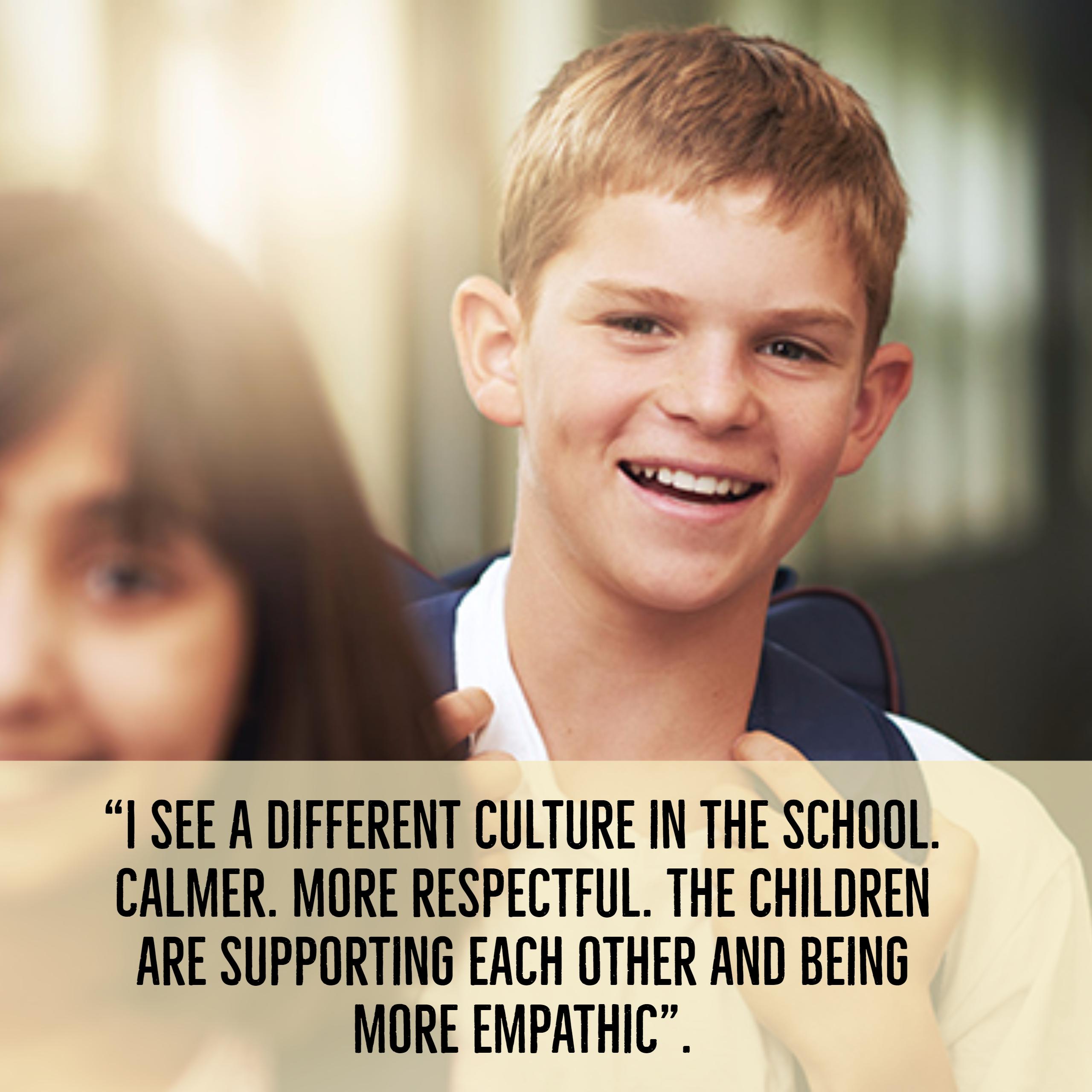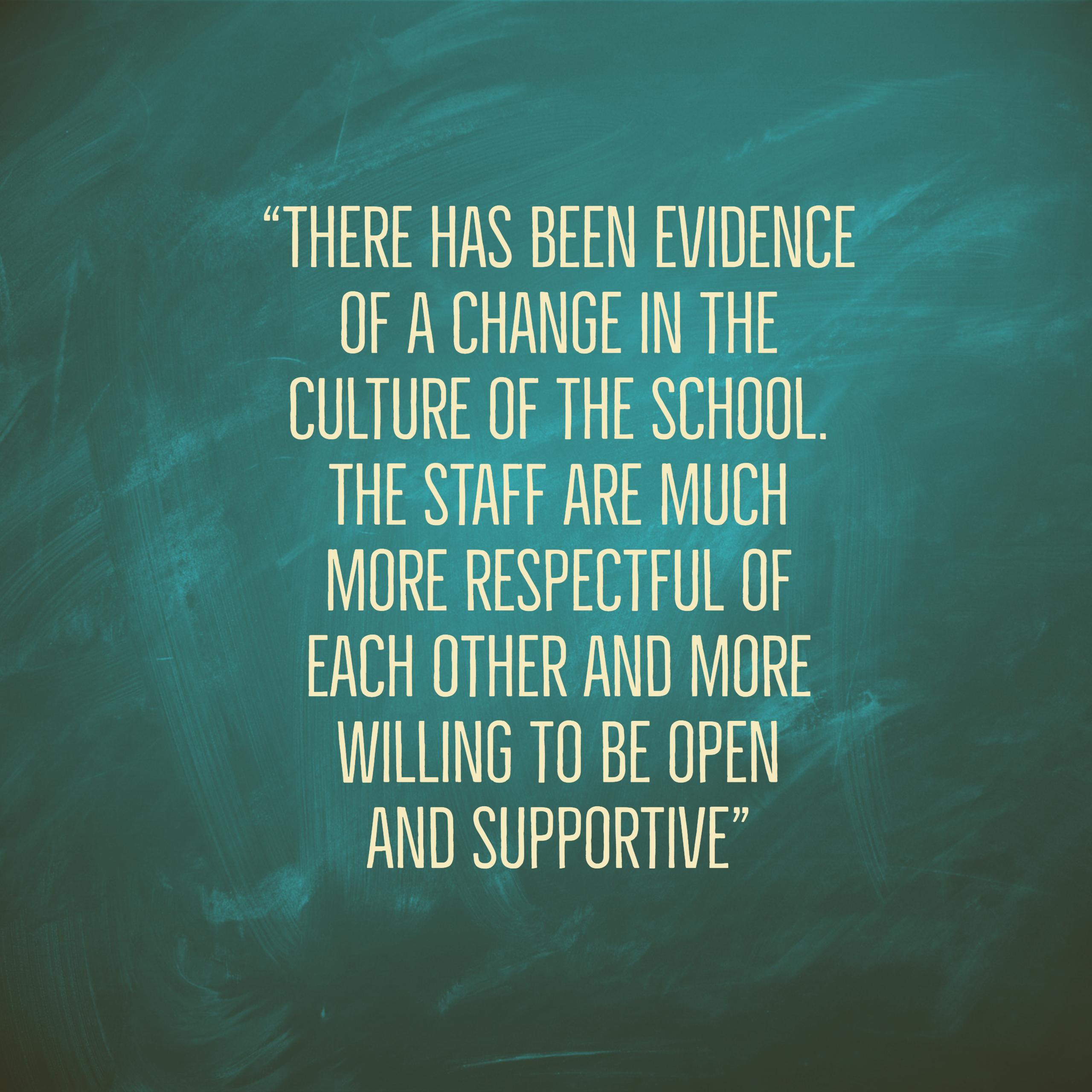
Introducing the School Services Program Part 2

In my recent reading of Bessel van der Kolk’s most current book titled, “The Body Keeps Score”, I was thrilled to note that he has made reference to the importance of schools and the role of Educators in supporting children who have either been traumatised or show trauma consistent behaviours. It becomes very clear to educators and support staff in schools, as we begin to immerse ourselves in understanding the neurobiology and the neurophysiology of trauma and its subsequent impacts, that many of our students have difficulties with relationships, managing emotions, regulating body states, learning and cognitive capacities as well as being able to monitor and modify their behaviour. In ACF’s work with educators, we always encourage teaching and support staff to consider looking at the behaviour presenting as an unmet need. Then, to question themselves about – what ‘need’ they should try to meet. If there is frustration, aggression, calling out constantly, running from the classroom, swearing, hitting, spitting, quietly dissociating and not engaging in the classroom activity or being the perfectionist people pleaser for example, the educators learn that often these behaviours are symptoms of how a child or young person is feeling.
 Such disturbing behaviours can be the result of a student trying to communicate that they are in a place of distress, feeling unsafe and uncertain and in the classroom, feeling a sense of shame because they have such a negative internal working model – “I’m helpless, hopeless, unworthy, unlovable, can’t do it, stupid, dumb” and the like. The antidote for a shame response is to be empathic with an individual. Educators will share with us that once they shift themselves from a place of “judgement” of the behaviour to a place of trying to “understand” the behaviour, both the student and the teacher benefit. They comment on a move from labelling certain behaviours – defiant, disruptive, “a waste of space”, or “this environment is not for this child” for example, to showing much more empathy and compassion as they get to know every child’s ‘story’. They begin to realise that if they really attune to the needs of the child or young person, begin to ‘read’ the body cues, have an awareness of what brings the student to feeling that they are safe, they can then support. The educator and support staff will consider mechanisms they can use to be the ‘co-regulator’ of the child and hope that eventually they will become obsolete because the young person has learnt how to ‘self-regulate’. Often the educators we work with fear that they cannot “do the work of the Psychs and Social Workers”. We instil in them that once teachers learn the principles of Trauma Sensitive Practices, they can translate these into the everyday classroom practice allowing for predictability, consistency of approaches, and repetition of activity as well always fostering a sense of safety. We also find that punitive styles of discipline are moved away from – there becomes no need.
Such disturbing behaviours can be the result of a student trying to communicate that they are in a place of distress, feeling unsafe and uncertain and in the classroom, feeling a sense of shame because they have such a negative internal working model – “I’m helpless, hopeless, unworthy, unlovable, can’t do it, stupid, dumb” and the like. The antidote for a shame response is to be empathic with an individual. Educators will share with us that once they shift themselves from a place of “judgement” of the behaviour to a place of trying to “understand” the behaviour, both the student and the teacher benefit. They comment on a move from labelling certain behaviours – defiant, disruptive, “a waste of space”, or “this environment is not for this child” for example, to showing much more empathy and compassion as they get to know every child’s ‘story’. They begin to realise that if they really attune to the needs of the child or young person, begin to ‘read’ the body cues, have an awareness of what brings the student to feeling that they are safe, they can then support. The educator and support staff will consider mechanisms they can use to be the ‘co-regulator’ of the child and hope that eventually they will become obsolete because the young person has learnt how to ‘self-regulate’. Often the educators we work with fear that they cannot “do the work of the Psychs and Social Workers”. We instil in them that once teachers learn the principles of Trauma Sensitive Practices, they can translate these into the everyday classroom practice allowing for predictability, consistency of approaches, and repetition of activity as well always fostering a sense of safety. We also find that punitive styles of discipline are moved away from – there becomes no need.
Teachers have shared with us some of the following comments pertaining to how trauma sensitive practice has changed them as Educators and impacted them personally:
- “I feel that I have more permission to do what I feel is ‘right’. I now do what I would do at home with my own children and that is to be more therapeutic in my approach with my students”.
- “There has been evidence of a change in the culture of the school. The staff are much more respectful of each other and more willing to be open and supportive”
- I feel that I am not as reactive. I ‘stop and pause’ before I respond. I try to understand the child’s feelings. If a child is exhausted, I let them sleep”.
- “My stress levels have decreased. I have been a lot calmer and we are having more fun. The curriculum is not the be all and end all”
- “I have become more reflective. I am nurturing my own children differently. This has really helped me at home. I have stopped ‘micro-managing’.
- “I am reflecting on many things differently. I am approaching emotions (mine and others) differently. I am mindful of when I am (or others) about to ‘flip my lid’.
- “I have been reflecting a great deal on my parenting style. I am being much more attentive and engaged with my own children”
- “The project has confirmed my ‘values’ and what is important to me when I became a parent.”
- “This project has made a complete difference in my entire life. My life will be completely different from here on in”.
- “Instead of existing, I now know how to live”.
- “I have learnt that relationships are key. It is important to set children and teachers up for success”.
- “There have been significant improvements in the staff group. They have ‘come more together’ and are much more supportive of each other.”
- “I see a different culture in the school. Calmer. More respectful. The children are supporting each other and being more empathic”.
 This list goes on and on and I wish to thank those educators who have shared with me their experience ofthe differences the projects have made to their professional and personal lives. This is truly humbling and the work the educators have put into these projects has been nothing short of astounding. And…I commend each and every one of them for their dedication to and diligence in working with us on the Action Research that highlights such a ‘change agent’ for their school sites.
This list goes on and on and I wish to thank those educators who have shared with me their experience ofthe differences the projects have made to their professional and personal lives. This is truly humbling and the work the educators have put into these projects has been nothing short of astounding. And…I commend each and every one of them for their dedication to and diligence in working with us on the Action Research that highlights such a ‘change agent’ for their school sites.
Following soon we will present a few Blog articles written by key personnel from a number of departments who will share with our readers their experiences of partnering with us at ACF and the benefits and bonuses of the Action Research also.
Should you wish to know more about how the ACF School Services Program can support your school or department, please do not hesitate to make contact us by clicking here.
